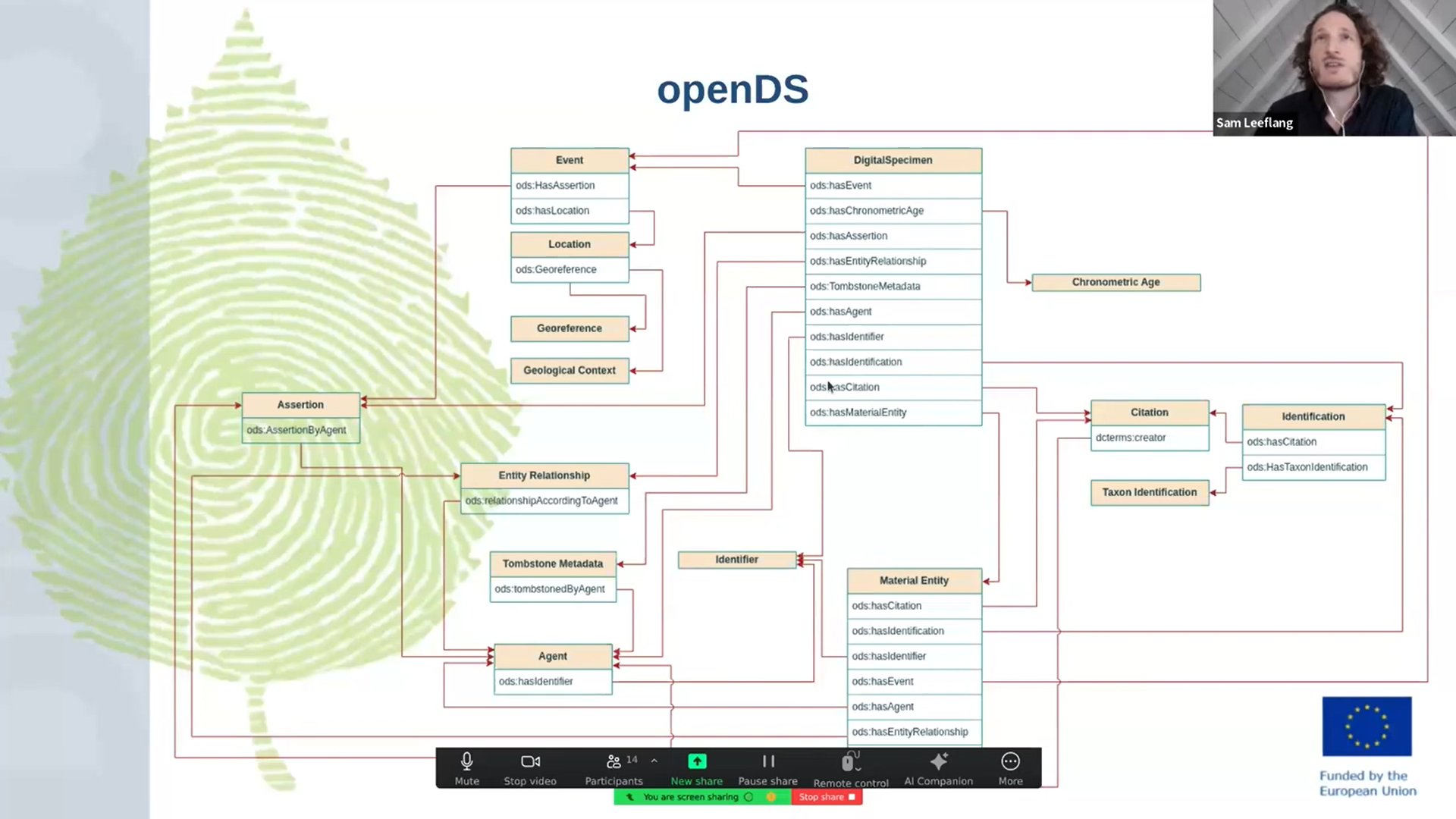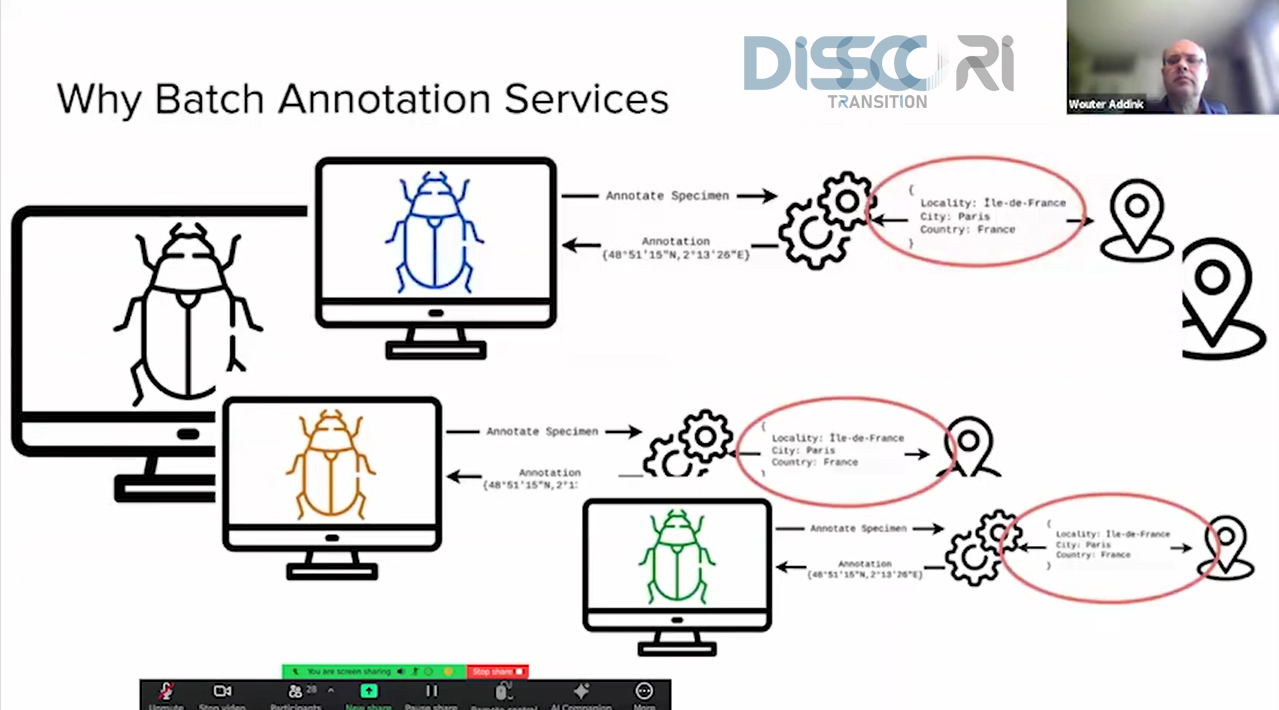
29 August 2024
As the DiSSCo Transition Project (DTP) is in full swing, the DiSSCo Development team will be giving regularly (bi-monthly) updates on the progress. This progress will mainly focus on Task 3.1 – Further develop the piloted Digital Specimen Architecture (DSarch) into a Minimum Valuable Product (MVP). However, as the development team is also involved on other tasks within DTP, as well as other projects such as TETTRIs, we will also include updates on our work there.
By Sam Leeflang (DiSSCo lead developer)
With the openDS public review extended until the 10th of September, it is no surprise that we made this one of the main topics of this demo. We realise that the review of our seven proposed Digital Objects is no a small feat. This is why we presented some additional diagrams, provided information about our Tombstone philosophy and provide room for questions and discussion.
Next, we took a short moment to dig into the changes in DiSSCo’s handle storage. Several improvements have been made to secure sufficient scaling for the minting of Persistent Identifiers (PID) for our Digital Objects. The biggest change is to shift from a relational database to a document store (MongoDB). To implement this, we depended on new functionality of the LoCal Handle Server, maintained by CNRI (Corporation for National Research Initiatives). CNRI implemented this change and DiSSCo will be the first to try scaling PIDs to a new highest.
Although our frontend developer Tom Dijkema was on holiday, he was so kind to provide us with a pre-recorded demo of the changes he is making to DiSSCover. In the past months, we have been making significant changes in our frontend, both visible and invisible. This improves the responsiveness and maintainability of DiSSCover, ensuring we can add new functionality in the future. Work on the improvements continues, and we hope to show the full result in the next demo.
We concluded the demonstrations with 15 minutes of questions. We would like to thank all participants and hope to see you at our next demo on the 23rd of October between 11:00–12:00!
The following topics were presented in the demo:
– openDS Terms documentation
– Data model changes implemented in infrastructure
– Improved Handle storage
– Updated MAS documentation
– First test of Naturalis Observability Stack
– Improved MAS support (support for encrypted secrets on deployment)
– Improvements in frontend code DiSSCover
– TETTRIs Marketplace

Looking forward to our next demo, which will be held on the 23rd of October, we hope to show the following topics:
– Incorporate review feedback and move openDS to a 1.0 version
– Finalise implementation of openDS 1.0 in infrastructure
– Continue frontend code improvement
– Produce annotations when data gets created/updated
– Documentation for supplying data/metadata
– Help MAS providers integrate with DiSSCo infrastructure (T3.2/MS16)
– Move to Observability stack Naturalis for monitoring/logging/auditing
– Tombstoning specimen records
– Improved logging/registration and integration with ORCID
– Extensive testing of MVP product
– Vocabulary Server
– TETTRIs Marketplace, incorporate feedback on prototype
Zoom link to demo session (October 23rd, 11:00h-12:00h CEST)
Do you want to know more about the technical side of DiSSCo? DiSSCo puts different technical knowledge platforms at the scientific community’s disposal:
DiSSCoTech: Get the latest technical posts about the design of DiSSCo’s Infrastructure
DiSSCo Labs: A preview of experimental services and demonstrators by the DiSSCo community
DiSSCo GitHub: Code hosting for DiSSCo software, version control and collaboration
DiSSCo Modelling Framework: A WikiBase tool that is configured to create an abstraction of the DiSSCo data model